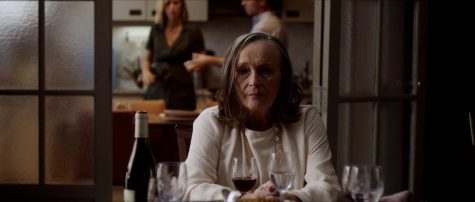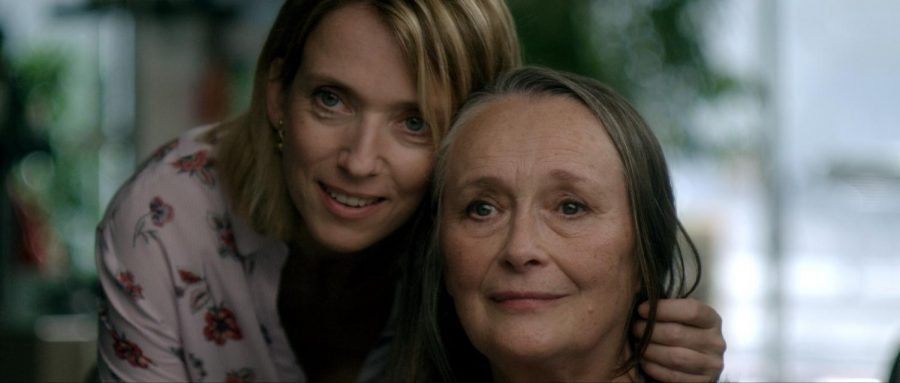Review: ‘Two of Us’ thwarts its character’s plan for love
Photo courtesy of Magnolia Pictures
Martine Chevallier and Léa Drucker in TWO OF US, a Magnolia Pictures release.
March 12, 2021
Children see adults as self-assured and fully grown into the bodies and minds the universe gave them. As the children themselves age, they realize that this was a misconceived notion. While we may wake up with new wrinkles or joint pains, we do not merely wake up with the confidence of knowing why we are here. The question of “who am I?” transforms into “how do I be who I want to be?”
“Two of Us,” a French film originally titled “Deux,” opens with a sequence of two young girls playing hide-and-seek in a tree-lined park. While it is unclear if this is a dream or memory, it establishes a life-long connection and intimacy between the two young girls playing.
The film follows Madeleine (Martine Chevallier) and Nina (Barbara Sukowa), two retirees who still play their games of ruses and white lies. To the outside world, they are neighbors who share a hallway on the top floor of an apartment complex. In reality, these apartments are a shared love nest. They are deeply in love and have been for some time.
Films rarely follow people on their journey of aging, even less so for lesbian couples. Most LGBTQ+ stories focus on characters in their so-called “prime,” featuring youthful bodies and lusting. So just in that sense, there is already something special about “Two of Us.”
Madeleine and Nina are ready to consolidate their living situation and move to Rome, where they initially met. Madeleine even prepares for her home to be listed by a real estate agent. Despite their early effort, there is one thing holding them back. Nina may be a free spirit, but Madeleine is a widow with two children, which she has purposefully kept in the dark.
Even though the filmmaker’s choice to focus on elderly lesbians may wade into unfamiliar territory, the film still manages to center a “coming out” story. Coming out may be part of the LGBTQ+ experience, but films tend to hyperfocus on this possibly turbulent time instead of the freedom that comes after.
Accordingly, Madeleine never finds the right moment to come clean to her children, who seem to be critical of her life after their father’s death. Madeleine keeps her secret buried away, telling the real estate agent that she would like to hold off on listing the apartment for now.
From this moment on, the film’s familiar romantic beats are disrupted by notes of a thriller as Nina discovers Madeleine’s deceit. While Madeleine waits to pick her clothes up from the laundromat, viewers can see Nina and the real estate agent just outside the window talking as a clambering washing machine provides the only audible sound. The film begins to play more “Parasite” than a classic romantic drama.

On the other hand, that transition also dips the film into emotional porn — blackmailing the viewer into being emotional by showing deep suffering. The plot implies that Madeleine’s stress from her inability to reveal the true nature of her relationship with Nina triggered a stroke.
Since Madeleine kept their relationship a secret, Nina isn’t given a crumb of detail on her health or recovery. Nina explores the worst parts of herself, destroying property and threatening the new caretaker to gain a few moments with Madeleine. The two are locked out of a future where they finally would have gotten to be who they wanted to be.
While the film does explore the headstrong assumption that only children know what is best for their parents, it feels like a misstep to place the characters, Madeleine and Nina, in such a struggle.
“Two of Us” is assuredly not the story the audience expected and offers an exciting mutation of the romance genre. Yet the torture of its two main characters — people who don’t usually see themselves age gracefully with love in cinema — feels cruel. Happy endings may be campy, but I wanted nothing more than for Nina and Madeleine to crawl their way out of this misery and find their version of happily ever after in Rome.
“Two of Us” is now available to stream in virtual cinemas across America, including Coolidge Corner Theater. It is also France’s submission to the international feature film category for the 2021 Academy Awards.







